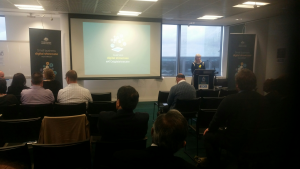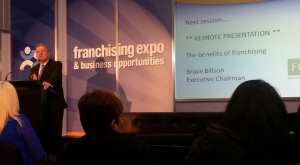Last week I attended the ATO Small Business Digital Showcase at the new ATO Offices in Dandenong.
It is clear that the ATO are working hard to engage with small business and help with your tax and superannuation obligations and improve your overall experience with the ATO.

The showcase was split into 6 individual showcase rooms with each group of around 15people being taken around the six separate displays areas one group at a time. Key points from the morning showcase are as follows: –
- The ATO’s Small Business Newsroom will deliver all the latest tax and super news straight to your email inbox. So, I suggest you sign up for this.
- ‘Alex’ the ATO’s new online Virtual Assistant, will help answer basic tax and superannuation questions.
- The free ATO app gives quick access from your mobile devices to key dates and frequently asked questions. A voice authentication option is available with a small business record keeping function under development.
- Your Sole Trader myGov account can be used to manage and view tax instalments, make payments and lodge statements.
- Sole Traders can now use voice authentication and cloud authentication to access online services.
- There is an online tool available to help you determine if your workers are classified as an ‘employee’ or ‘contractor’ (and hence clarify your obligations to them).
- All businesses with employees are now meant to be on SuperStream with the free online super payment clearing service available to pay contributions in one transaction available.
- A new simpler BAS product has been launched with a Single Touch Payroll product under development.
- There is an online checklist for ‘taking on a new employee’ at business.gov.au
Some key ATO phone numbers for your reference follow: –
Business: 13 28 66
Super: 13 10 20
24-hour self-help service: 13 72 26
SUMMARY
The ATO are actively trying to reduce red tape for small business. The showcase was a great example of the ATO’s pro-activeness in this area. Jump onto their website at www.ato.gov.au/SBsupport for more information.
Ross – Billson Advisory









